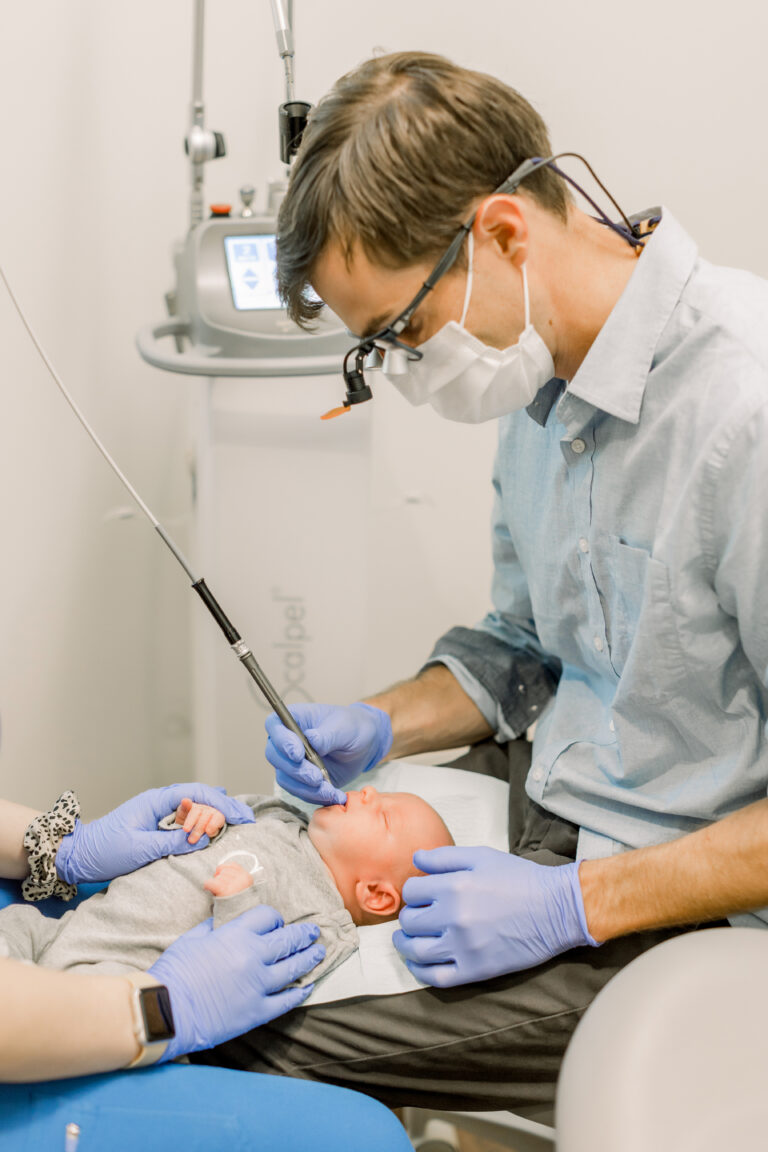Treatment for Children and Adolescents
There are many children who have difficulties related to tongue-ties and lip-ties, but unfortunately, these conditions are often not identified until later in life. They can cause speech and feeding difficulties, sleep issues, and a wide-range of other concerns.
If your child is unable to touch the roof of the mouth with his or her tongue when opening widely, is struggling with speech delay, or speech issues that aren’t resolving, has difficulty eating or getting a good night’s sleep, consider getting a complimentary evaluation.
Speech
A tongue restriction affects speech differently in each individual. Some children with a to-the-tip tie can articulate well (but may struggle with increased effort when speaking). Other children, with a less visible or posterior tie, may have a speech delay or difficulty producing the sounds for L, R, T, D, N, TH, SH, and Z. We have seen that many tongue-tied children begin saying new words even just hours or days after the release! Not every child will have immediate results, but we often see drastic improvement.
Sleep
A tongue-tied child will often grind his or her teeth at night, snore, or experience other sleep-disordered breathing problems. Releasing a tongue-tie can help a child to sleep more soundly because the tongue will be able to rest on the palate, as it was designed to do, rather than falling back to narrow or block the child’s airway. Sleep-disordered breathing can cause frequent waking, restlessness, bed-wetting, failure to feel refreshed upon waking and accompanying difficulty focusing (which is sometimes misdiagnosed as ADD or ADHD).
Sometimes a child will be seen by multiple specialists to try to remedy a problem that could actually be quickly solved with a quick tie release treatment. In addition, children with tongue-ties often have a history of multiple ear infections and needing ear tubes. They may have had tonsils and adenoids removed. All of these can be complicated by the mouth-breathing that frequently occurs in tongue-tied individuals. We have found that when a tongue-tie is treated, sleep can improve dramatically.

